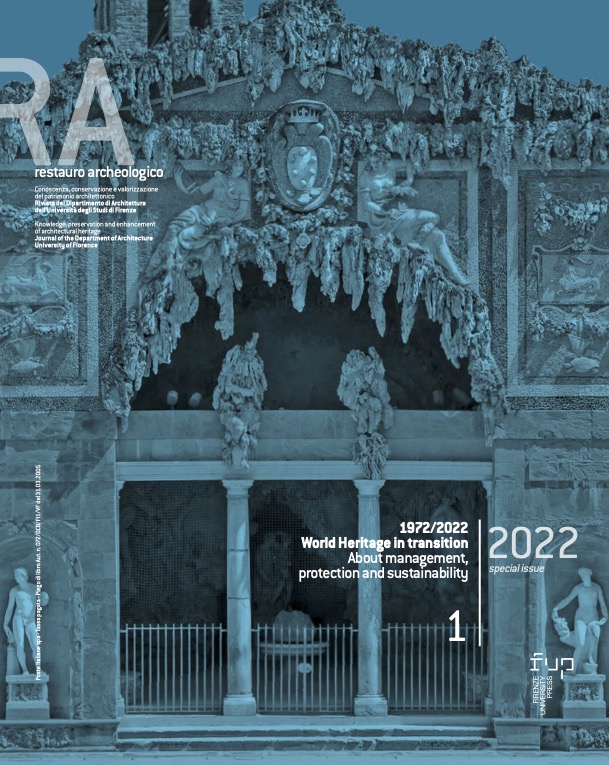L’UNESCO e la ‘democratizzazione della cultura’. Siti archeologici nel centro antico di Napoli tra accessibilità e fruizione inclusiva
Published 2023-02-03
Keywords
- Conservation,
- Historical center,
- Archaeology,
- UNESCO,
- Accessibility
How to Cite
Abstract
The ancient city center of Naples, UNESCO heritage site since 1995, constitutes a complex palimpsest, in which inhabitants and tourists coexist. It is the result of numerous ancient and modern overwriting, vitiated by a fleeting distinction between the public and private dimensions, by tampering and abuses, which conditions the methods of conservation and use of archaeological sites which in many cases are inaccessible, forbidden, hidden by other constructions. The proposed contribution, highlighting the reasons that led the ancient center of Naples to its inclusion in the world heritage list, intends to highlight how international recognition has facilitated the inclusive policies of built heritage with reference to archaeological sites. This also in the light of a process of 'democratization of culture', supported in the most recent UNESCO directives, which has contributed to expressing criticalities and potentialities and which looks at the restoration of archaeological evidence as a tool for physical, sensorial, and cultural accessibility.


